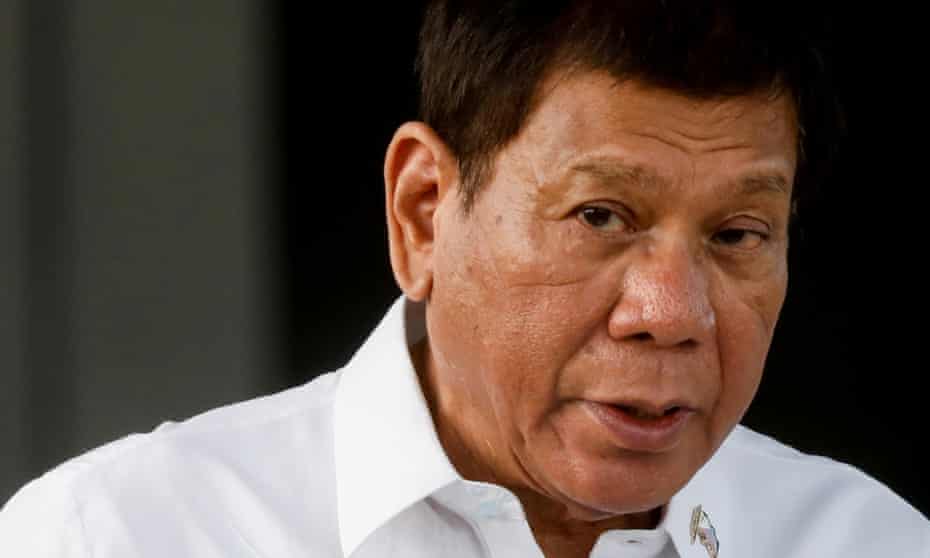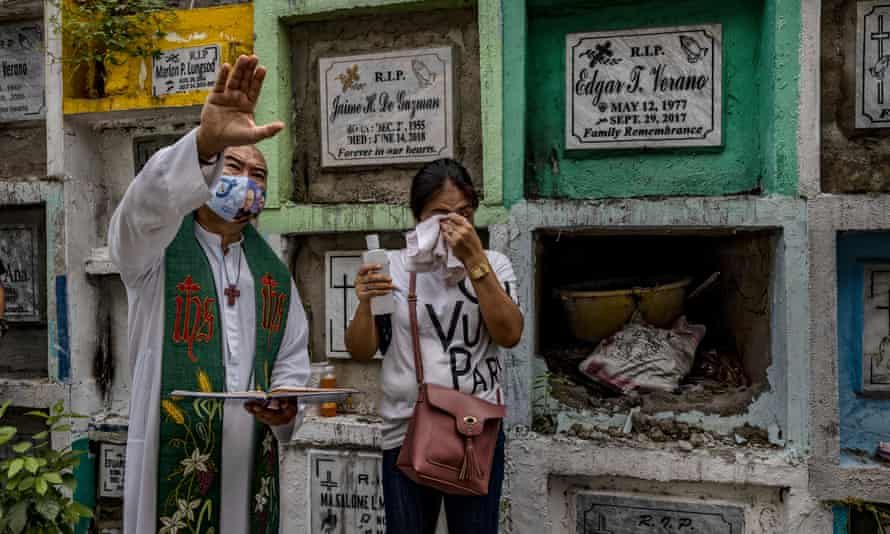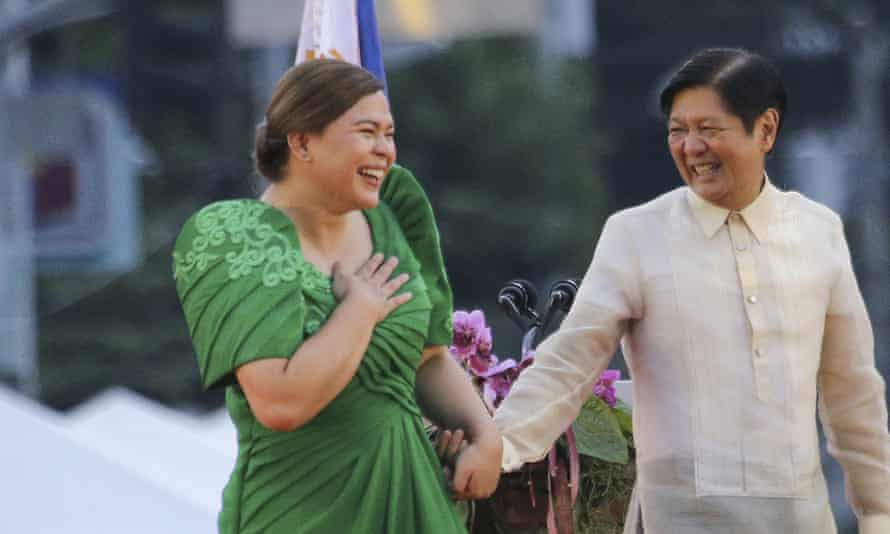‘The Punisher’: Rodrigo Duterte’s violent reign as Philippines president to end
"Analysis: Duterte’s popularity remains undented among people in poorer areas despite attacks on human rights, rule of law and media

Six years ago, the tough-talking mayor of Davao City, known as “the Punisher” because of his merciless approach to crime, was on the brink of taking national power in the Philippines. He promised to move power away from Manila elites, tackle poverty, corruption, and drugs. “When I become president,” Rodrigo Duterte told one rally, “I will order the police to find those people [involved in drugs] and kill them. The funeral parlours will be packed.”
The latter prediction was, at least, correct. When Duterte steps down on 30 June, having reached the end of his term limit, he will leave behind a country in which human rights, the media and rule of law have been weakened, say analysts.
Up to 30,000 people are dead as result of extrajudicial killings linked to Duterte’s “war on drugs”, according to an estimate cited by the international criminal court (ICC), which is now investigating the killings. Most of those killed were young men living in poor urban areas.
Media and activists who scrutinised his administration, or displeased Duterte, have been hounded. Maria Ressa, the co-founder of news website Rappler, who was awarded last year’s Nobel prize, has faced a raft of legal cases and relentless online attacks for her work. The country’s biggest broadcaster, ABS-CBN, was ordered off air. One of the president’s most prominent critics, Leila de Lima, remains in prison; she has been held for the past five years on what she says are trumped-up charges. Duterte and his spokesperson have denied that any of the above actions were politically motivated.
Civil society activists say they live with the threat of “red tagging” – where critical voices are labelled communist, which can lead to harassment and even deadly violence.

Previous Philippine presidents have attacked democratic institutions and human rights but Duterte is different, says Cleve V Arguelles, a lecturer at De La Salle University and head of research at WR Numero Research. “What’s quite unique to President Duterte is how he is able to mobilise popular support for these types of actions,” he said. “He was able to offer an alternative political engagement for Filipinos.”
Duterte’s approach to foreign policy has been as tumultuous as his governance at home. He has responded to international criticism over his “war” on drugs by threatening to withdraw from the UN, calling the then US president Barack Obama the “son of a whore” (he later said he did not mean it personal insult), and threatening to slap ICC judges.
Duterte promised an “independent” foreign policy, but observers say that in practice he has shifted the Philippines further from the US, only to move closer to China. This has undermined his ability to defend the country’s sovereignty in the disputed South China Sea, says Prof Maria Ela L Atienza, a professor at the University of the Philippines. “We did not benefit too much, the economy did not benefit, and our interests remain to be compromised in terms of the South China Sea and our fisherfolk continue to be harassed,” she said.
While campaigning to be president, he famously said he would ride a jetski to Spratly islands or Scarborough Shoal to plant a Philippine flag – but once in office denied he had promised to take a tough stance against China. A Hague ruling that rejected Beijing’s claims to most of the South China Sea has been downplayed by Duterte.
Duterte has, added Atienza, fallen short too on other key campaign promises. “[Of] the infrastructure projects, many of these were not really delivered,” she said. His promise of shifting to a more federal system did not materialise, and the president himself admitted he had failed to end the country’s drug problem.

While the Philippines was one of the fastest growing economies in Asia prior to the pandemic, poverty increased from 21.1% in the first half of 2018 to 23.7% in the first half of 2021.
Duterte’s popularity has remained undented, however. “He is still seen as very, very charismatic … as very authentic,” says Arguelles.
Television addresses during the Covid pandemic in which Duterte spoke at length about the difficulties in government were appreciated by voters in poorer, urban areas, who empathised with him as a regular guy, Arguelles found during research.
Even the gruelling lockdown imposed during Covid, which was strictly enforced by the military, was welcomed by some, especially those in wealthier communities, who feared street riots, he added.
Duterte has not hidden his frustration that, despite the enduring popularity of his family name, his daughter Sara Duterte did not run for the presidency. Instead, she ran for the vice presidency in tandem with Marcos Jr, boosting his campaign.
Marcos Jr will assume power at a time when opposition voices and media have been weakened. “More than ever it is now easier to co-opt people who are supposed to oppose the administration,” said Jean Encinas Franco, an associate professor at the University of the Philippines. “It is now very easy to instil fear or to ask for favours from legislators mainly based on trust ratings.”
Ironically, Duterte has played a key role in paving the way for a Marcos Jr candidacy and eventual victory, say observers, who point out that he allowed Marcos Sr a hero’s burial, glorified authoritarian style leadership and allowed disinformation favourable to the late dictator to spread online.
Duterte has been offered a role as drug tsar under Marcos Jr’s administration, but declined the role. Offering the outgoing president a position to keep him busy was a shrewd move, said Arguelles. “Marcos Jr should be worried about the president,” he said. “He is ending his term with political influence and political capital.”
Duterte has told media that he plans to spend his retirement roaming on a motorbike searching for and killing drug dealers. His “drift is just really to retire quietly”, Durtere added recently, but said that he would continue to speak out about issues relating to drugs and criminality. “If there is a compelling need for me to talk, I will do it,” he said."






No comments:
Post a Comment